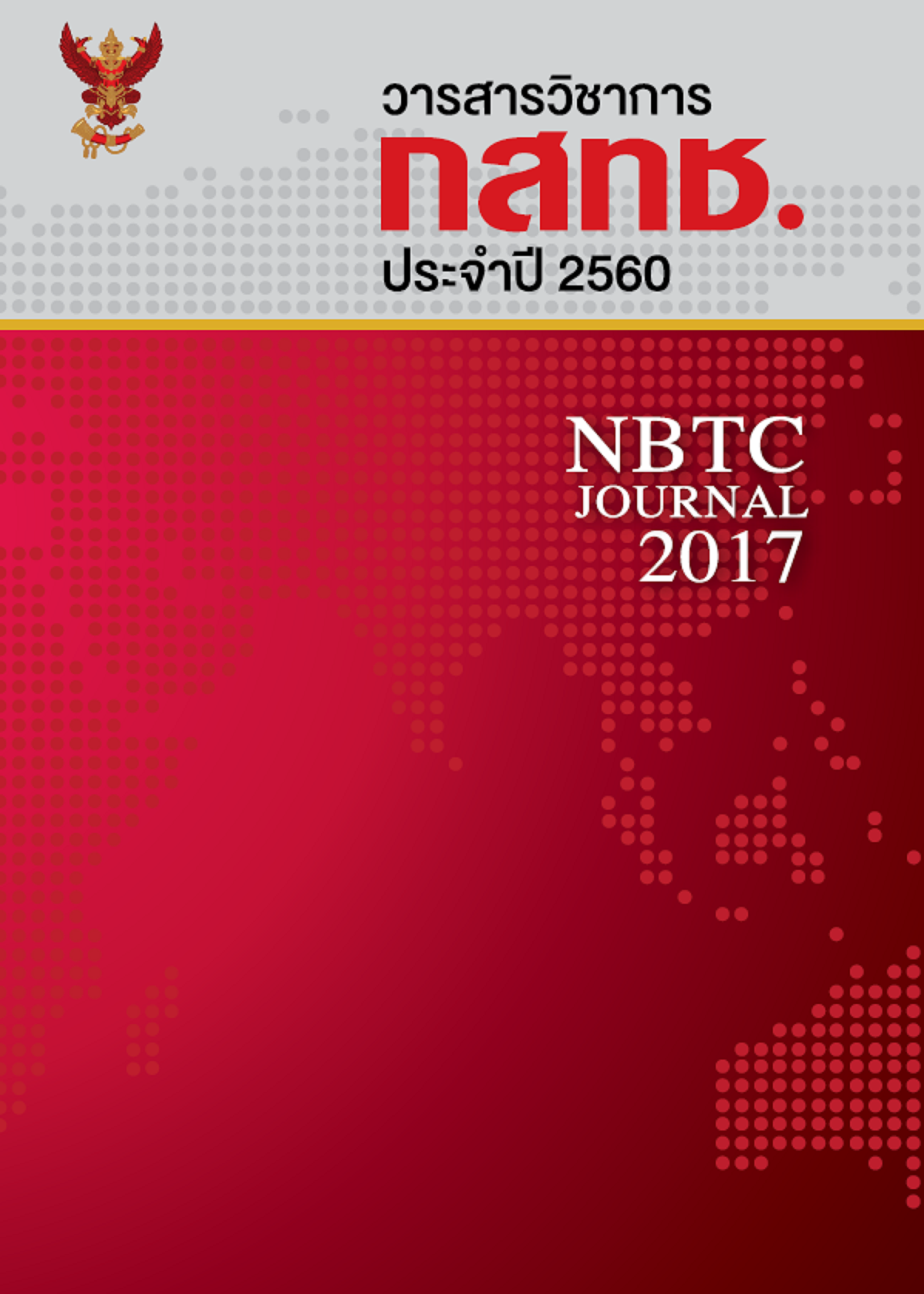การเปลี่ยนผ่านของการจัดการความรู้
Keywords:
Knowledge Management, Knowledge Sharing, SECI Model, Big Data, Thailand 4.0Abstract
Knowledge management (KM) has come to play a pivotal role in the development of both public and private organizations. Knowledge makes human more choices and is a valuable resource for organization. KM model presented by Nonaka and Takeuchi (1995), make a Japanese company all success. On the other hand, deficiencies in KM, especially in the sector of knowledge sharing may lead to unexpected damage. Social Media as part of Web 2.0 has opened a social dimension to the KM community. The rising number of Mobile internet users shows the thoroughness and popularity of the people. But what follows in the dark side is the misuse of Social Media and became a cybercriminal. Last year, Thai government promoted "Thailand 4.0", a new economic model to push the country to become "First World Nation”. The main issue is the innovation of 5 groups comprises Smart City, Low – carbon Society, Medical Hub, Food Innopolis, and Water Management & Technology. In this regard, KM which based on information technology will play a significant role in creating these innovations.
References
Buckman, Robert H. (2004) Building Knowledge Driven Organization. McGraw - Hill Madison Wisconsin:
Friedman, Thomas L. (2006) The World is Flat.. Penguin Books, London
Grove, Andrew S. (1996) Only the Paranoid Survive. Double Day Publishing, New York
Jackson, Brian A. (2005) Aptitude for Destruction Organizational Learning in Terrorist Groups and its Implications for
Combating Terrorism. RAND Corporation. Santa Monica CA.
Mumford, Andrew. (2015)How Terrorist Groups ‘Learn’ Innovation and adaptation in politicalviolence.British
Academy, London
Nonaka, Ikujiro. (1995) Knowledge Creating Company, Oxford University Press, New York
Poundstone, William, (2017) Head in the Cloud. Little Brown and Company, New York
World Public Sector Report, (2005) Unblocking the Human Potential for Public Sector Performance, United Nation,
New York,
Boyes, Bruce, The impact of social media on knowledge management Retrieved from
https://realkm.com/2016/11/11/the-impact-of-social-media-on- knowledge-management/
Lamont,Judith. (2012), Big data has big implications for knowledge management, KM World. Mar 31,
Retrieved from https://www.kmworld.com/Articles/Editorial/Features/Big-data- has-big-implications-
for-knowledge-management-81440.aspx
The Knowledge: The World's Toughest Taxi Test. Retrieved from https://www.youtube.com/watch?v=u7gp8KBP7ak
Press Release Stat Counter, Retrieved from https://gs.statcounter.com/press/mobile-and-tablet-internet-
usage-exceeds-desktop-for-first-time-worldwide
World Intellectual Property Organization, (2017).Global Innovation Index 2017 Innovation Feeding the World
,Cornell University,Retrieved from https://www.wipo.int/publications/en/details.jsp?id=4193
Filgueiras. L Miriam, (2013)What are the relationships between Knowledge Management Innovation Management
Organizational Learning? Research Gate 2013 Retrieved from
https://www.researchgate.net/post/What_are_the_relationships_between_Knowledge_Management-
Innovation_Management-Organizational_Learning
Exploring the Role of Social Media in Knowledge Sharing. Research Gate .November 2015 Retrieved from:
https://www.researchgate.net/publication/289991763
Thailand 4.0,New Engine of growth, Retrieved from https://thaiembdc.org/thailand-4-0-2/
Downloads
Published
How to Cite
Issue
Section
License
The Office of the NBTC holds the copyright of articles appearing in the journal. The Office of the NBTC allows the public or individuals to distribute, copy, or republish the work under a Creative Commons license (CC), with attribution (BY), No Derivatives (ND) and NonCommercial (NC); unless written permission is received from the Office of the NBTC.
Text, tables, and figures that appear in articles accepted for publication in this journal are personal opinion and responsibility of the author, and not binding on the NBTC and the Office of the NBTC. In case of errors, each author is solely responsible for their own article, and not concerning the NBTC and the NBTC Office in any way.



